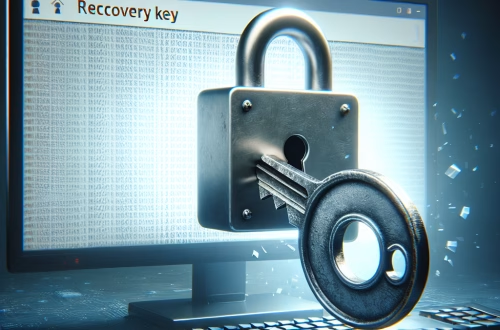BitLocker Slow Encryption Fix
Summary:
BitLocker slow encryption fix refers to troubleshooting methods to resolve performance bottlenecks during the BitLocker encryption process. BitLocker, a full-disk encryption feature in Windows, sometimes experiences delays due to hardware limitations, misconfigurations, or software conflicts. Common triggers include high CPU usage, outdated firmware, or insufficient TPM (Trusted Platform Module) support. Solutions focus on optimizing system resources, updating drivers, and ensuring proper encryption settings to expedite the process.
What This Means for You:
- Immediate Impact: Slow encryption may delay system startup or file access, impacting productivity.
- Data Accessibility & Security: Ensure your recovery key is accessible to avoid lockouts during encryption interruptions.
- System Functionality & Recovery: Regularly check system logs for encryption errors and verify TPM status in the BIOS.
- Future Outlook & Prevention Warning: Keep firmware and drivers updated to prevent recurrence and optimize encryption performance.
Explained: BitLocker Slow Encryption Fix
Solution 1: Optimizing System Resources
Slow BitLocker encryption often occurs due to competing processes consuming CPU or disk bandwidth. Use Task Manager (Ctrl+Shift+Esc) to identify resource-heavy applications and close unnecessary programs. Adjust BitLocker’s encryption method via PowerShell: Set-BitLockerVolume -MountPoint "C:" -EncryptionMethod XTS-AES256 for better performance. Disable background services like Windows Search or Indexing during encryption.
Solution 2: Updating TPM and Firmware
An outdated TPM can bottleneck encryption. Check TPM version in tpm.msc and update firmware via the manufacturer’s utility. Reset the TPM using Clear-Tpm in PowerShell (back up data first). For systems without TPM, enable “Allow BitLocker without a compatible TPM” in Group Policy (gpedit.msc) under Computer Configuration > Administrative Templates > Windows Components > BitLocker Drive Encryption.
Solution 3: Adjusting Encryption Settings
Use the command line to modify encryption parameters. For example, manage-bde -on C: -usedspaceonly encrypts only used disk space, speeding up the process. Disable hardware-based encryption if the drive lacks native support: manage-bde -off C:, then re-enable with software encryption.
Solution 4: Troubleshooting Hardware Compatibility
Verify SSD/HDD compatibility with BitLocker using fsutil fsinfo ntfsinfo C:. Ensure AHCI mode is enabled in BIOS for optimal disk performance. Replace aging hardware if consistent slowness persists, as older drives may lack AES-NI instruction support.
People Also Ask About:
- Does BitLocker slow down SSDs? Properly configured BitLocker has minimal impact on SSDs with hardware encryption support.
- How long should BitLocker encryption take? Duration depends on drive size and speed; a 500GB SSD typically takes 1-3 hours.
- Can I pause BitLocker encryption? Yes, use
Suspend-BitLocker -MountPoint "C:", but resume promptly to avoid security gaps. - Why does BitLocker get stuck at 99%? Often caused by system interrupts; reboot and check event logs for errors.
Other Resources:
- Microsoft Docs: BitLocker Overview
- NIST SP 800-111: Storage Encryption Guidelines
Suggested Protections:
- Enable TPM 2.0 and Secure Boot in BIOS for hardware acceleration.
- Schedule encryption during low-usage periods to minimize disruptions.
- Regularly back up recovery keys to a secure location.
- Monitor encryption progress via
manage-bde -status.
Expert Opinion:
“BitLocker’s encryption speed is often symptomatic of broader system health. Prioritize hardware compatibility and modern encryption standards like XTS-AES to balance security and performance. Enterprises should integrate BitLocker management with Intune for proactive monitoring.” – Windows Security Engineer.
Related Key Terms:
- TPM (Trusted Platform Module)
- AES-NI instruction set
- Hardware vs. software encryption
- BitLocker recovery key
- Disk encryption performance
*Featured image sourced by DallE-3





